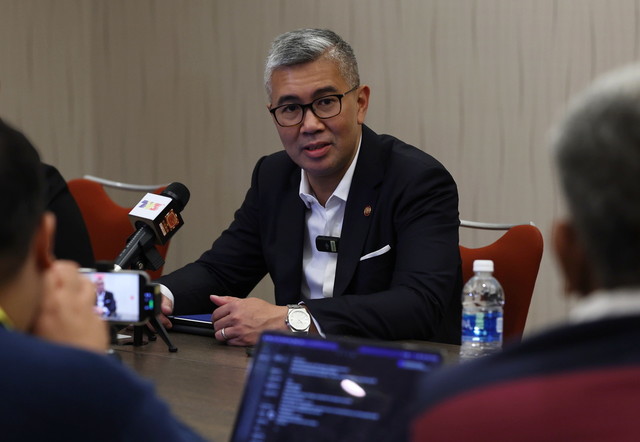APEC Must Not Falter From Advocating Economic Cooperation

KUALA LUMPUR, Feb 16 (Bernama) -- Asia-Pacific Economic Cooperation (APEC) must not falter from advocating open markets and economic cooperation to mitigate further global economic fragmentation, Malaysia’s Investment, Trade and Industry Minister Tengku Zafrul Abdul Aziz said.
The Minister said the forum must amplify the benefits of multilateral trade agreements, exemplified by the ASEAN Free Trade Area (AFTA), Regional Comprehensive Economic Partnership (RCEP), Comprehensive and Progressive Agreement for Trans-Pacific Partnership (CPTPP) and Free Trade Area of the Asia-Pacific (FTAAP).
“These arrangements indeed offer frameworks for collaboration and avenues to collectively address challenges and foster regional economic integration,” he said during the APEC Business Advisory Council (ABAC) gala dinner Thursday.
Tengku Zafrul said exposed vulnerabilities from the Covid-19 pandemic along with prolonged geopolitical tensions have led to issues such as disruptions of global supply chains and surge in the costs of goods and logistics.
“One of the key ways to weather this storm is by going at it together. As such, multilateral initiatives such as APEC is crucial to allow collective and continuous efforts to be taken,” he said.
Tengku Zafrul said as the world navigates the “turbulent waters”, APEC’s response must also be comprehensive and forward-looking.
“Therefore, I am pleased to hear that ABAC Peru will focus this year's workplan on regional economic integration, human development, and sustainability.
“These pillars are key to steering the Asia-Pacific region by fostering economic resilience through integration, empowering a skilled and inclusive workforce, and promoting sustainable practices in ensuring long-term viability and global competitiveness,” he noted.
Sharing Malaysia's perspective, the minister said APEC holds a distinctive significance for the nation.
“It serves as a fundamental pillar of our economic strategy, guiding the formulation of national policies aligned with the region’s collective aspirations.
“Malaysia's initiatives, spanning the cultivation of a dynamic digital landscape to the preservation of our shared environment, resonate deeply with the core principles of APEC,” he said.
He added Malaysia has its clearest economic direction at present as outlined by the MADANI Economy agenda, underpinned by several policies announced last year.
The New Industrial Masterplan 2030 and the National Energy Transition Roadmap are the policies.
“Like APEC’s core principles, Malaysia remains committed to being open and receptive to opportunities and investments, particularly from our long-standing partner economies,” he said.
Tengku Zafrul said in 2022, APEC economies made substantial contributions to the Malaysian economy, constituting an impressive 76.5 per cent of the country’s net foreign direct investment inflows.
“This underscores Malaysia’s steadfast dedication to fostering robust economic partnerships within APEC,” he said.
He also commended the first ABAC (ABAC 1) meeting for 2024 in Kuala Lumpur, which has been productive and fruitful thus far.
Tengku Zafrul said the significance of this three-day meeting that ends tomorrow cannot be overstated as it marks the official commencement of its 2024 work plan, a pivotal roadmap that will culminate in recommendations presented to APEC Economic Leaders in Peru at the end of the year.
“These recommendations will play a crucial role in guiding policy formulation to address the pervasive impacts stemming from ongoing economic and geopolitical challenges affecting the Asia-Pacific region,” he added.
-- BERNAMA





